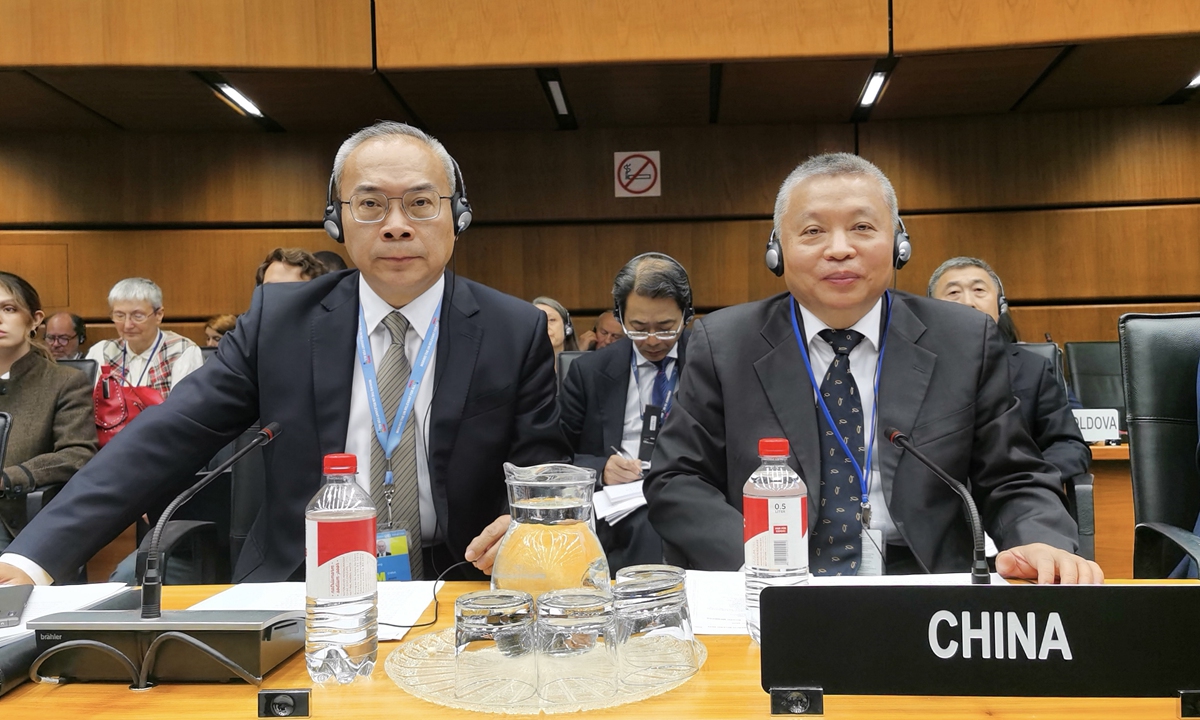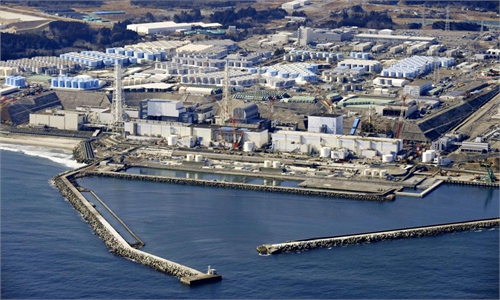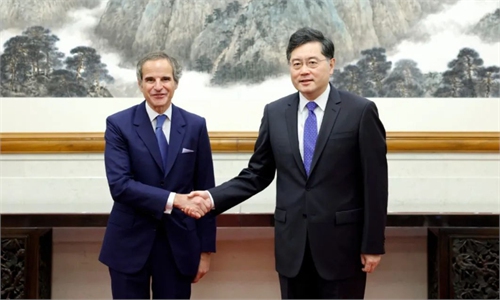Chinese envoys criticize Japan’s ‘extremely irresponsible’ act, urging it to safely dispose of Fukushima nuclear-contaminated wastewater

Li Song (left) and Zhang Kejian Photo: Website of the Permanent Mission of China to the United Nations and other international organizations in Vienna
Speaking on the issue of Japan's discharge of Fukushima nuclear-contaminated wastewater into sea, Zhang Kejian, chairman of China Atomic Energy Authority harshly criticized Japan's "extremely irresponsible" act at an International Atomic Energy Agency (IAEA) board of governors meeting held on Monday in Vienna, the capital of Austria.
Japan's discharge of nuclear-contaminated wastewater into sea is a major issue concerning the global marine environment and public health, and is not a private matter for Japan alone, Zhang said.
In disregard of the legitimate concerns of its own citizens and other countries, Japan has not yet made a scientific and credible statement on the concerns of all parties, nor has it fully consulted with other parties involved including its neighbor countries. It is "extremely irresponsible" for Japan to proceed with accelerating the plan to release nuclear-contaminated wastewater into the sea, Zhang pointed out.
Zhang urged Japan to pay attention to the concerns of the international community, fulfilling its international obligations and disposing of nuclear-contaminated wastewater in a scientific, open, transparent and safe manner. Japan should also accept strict international supervision, and not to undermine the authority of the technical working group, not to distort the report submitted by the technical working group, Zhang pointed out.
It is hoped that the IAEA will continue to uphold an objective and impartial stance, fully listen to the parties concerned, and strictly implement relevant international safety standards and good practices, Zhang said.
Tokyo Electric Power Company (TEPCO) on Monday started to send seawater into an underwater tunnel that has been built to release treated water from the Fukushima Daiichi nuclear power plant into the ocean, NHK reported on Tuesday. The water release system is almost done, and the utility plans to complete all construction work by the end of this month, according to NHK.
Zhang stressed that the amount of nuclear-contaminated wastewater from the plant is significant, and the composition is complex and the disposal period is an unprecedented length. There is no effective technology to treat that number of nuclides, and some long-lived nuclides may diffuse with ocean currents, which will bring unpredictable impacts on marine ecology and human health, according to Zhang.
It is "unacceptable" for Japan to push forward the discharge plan without verifying the long-term reliability of relevant technology and purification equipment in an attempt to cover up the danger, Zhang noted.
The Japanese representative argued that the "treated water" purified by ALPS is no different from the normal discharged water from a nuclear power plant. In response to the view, Li Song, China's Permanent Representative to the UN and other international organizations in Vienna pointed out that Japan has adjusted the concept that the discharge of nuclear-contaminated wastewater from Fukushima into the sea, which is completely different from the normal operation of nuclear power plants.
If it's harmless, why does Japan insist on discharging it into the ocean? The answer from Japan's own panel of experts was clear - this is the cheapest way and the risk of contamination to Japan itself is minimal, Li said.
China strongly urges Japan to face up to the serious concerns of the international community, and dispose of nuclear-contaminated wastewater from Fukushima in the safest way, as well as accepting strict international supervision to ensure that it will not impose long-term harm on the world, Li pointed out.


